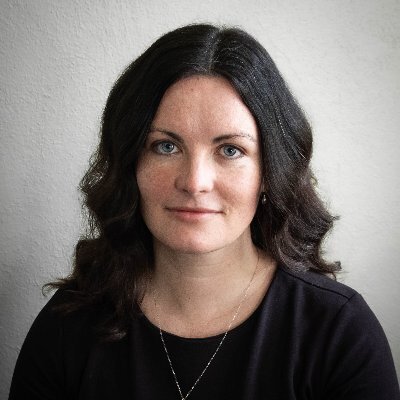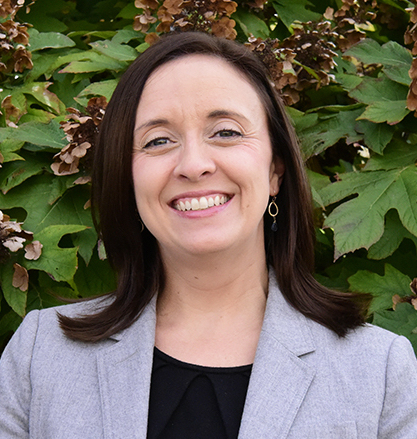Gender Theory

Moral theology has always made a great deal of sense to me. As a well-educated but non-specialist lay person, I like thinking seriously about issues in a way that is not simply political. Again this week, America has provided us with a continuing conversation about gender theory, with essays by two theologians: Abigail Favale of the University of Notre Dame and Elizabeth Sweeny Block of St. Louis University.
I must admit that I am not a neutral observer. Their original dialogue in America is framed as responses to the 2019 Vatican instruction from the Congregation for Catholic Education, “‘Male and Female He Created Them’: Towards a Path of Dialogue on the Question of Gender Theory in Education.” I wrote about that document when it came out. I said that the “educational crisis” that the Congregation used to justify this “instruction was “a crisis of the Vatican’s own making, and it will have dire consequences… [because it] denies the validity of transgender as a concept (ideology) and as an experience. I fear most for transgender children in Catholic families and Catholic schools. Despite its recognition of the primacy of families in the education of their children, the document stresses that schools need to teach this damaging theology.”
The question I asked then is borne out by experience today:
“Is this not crazy-making, for the school, the child, the parents, the teachers?”
This week, an editorial and two articles in National Catholic Reporter examine the fraught efforts of Catholic school systems to create policies about transgender children – often without the input of the parents concerned, some of whom are organizing in response.
But today I want to probe the theology behind these conflicts. It has profound implications for the understanding of gender that affects our search for a sacrament of ordination that is open to everyone.

In that blog I did say that this document “is a really useful summary of papal teaching on gender and sexuality,” and “The most startling take-away for me is how much Pope Francis is invested in this theology.” This is Favale’s trump card. She says over and over that Francis’s theology continues what John Paul II and Benedict XIV wrote about gender, which is “that there is a givenness to the created order, especially to our sexed bodies—and I mean ‘given’ both in the sense that we have an intrinsic nature and that this nature is a gift,” as she writes in her opening statement. But she slips and lets politics enter in: “A framework that actively seeks to erode sex-based categories can be readily imbibed by wealthy, cushioned, laptop elites—but it will not speak to the experiences of most people in the world, especially most women, whose lives are very much contoured by the facticity of femaleness.” Concern for the poor and marginalized does not invalidate the experience of those who are not; it should compel greater sympathy and identification.

Sweeny Block’s opening statement summarizes the document more objectively than I did, though she also finds it wanting. “Any small steps forward are overshadowed by glaring omissions and misplaced blame. I will focus on three: the absence of genuine listening, the mistaken claim that radical autonomy is to blame for the existence of transgender and nonbinary people, and the lack of engagement with science.” She draws upon the Vatican II understanding of freedom to argue that transgender and nonbinary Catholics do not exercise “the careless, reckless autonomy described in ‘Male and Female He Created Them,’ nor are these decisions about gender identity made lightly. These are decisions of conscience.”
Sweeny Block continues with the critique most relevant to ordination: “The document states that a ‘person’s sex is a structural determinant of male or female identity,’ as if these are universal identities with stable characteristics, such as ‘women’s capacity for the other’ and women’s central role in education.” Arguing against such essentialism, she draws on science and then concludes, “Transgender and nonbinary persons and proponents of gender theory are not trying to negate difference. Rather, they are revealing to us that difference is messier than any binary can reflect. The differing gifts and qualities that each person brings to relationships are essential, but surely our biological features and sex characteristics are not the most important thing about us.”
Favale replies that “gender theory is a project of denaturalization. The goal is to unmask what we commonly think of as natural and reveal it as always already social. In second-wave feminist theory, this happened with the norms and behaviors associated with sex, and often rightly so.” Thinking this way might open the possibility of ordination. But Favale then elaborates with an example: “through the third wave innovations of scholars like Judith Butler, this happened with sex itself. The sex binary, upon which the existence of our species depends, is now regarded as a social fiction rather than natural.” Reproduction is basic to her theology, not relationships or identity.
In her reply, Sweeney Block acknowledges that Favale may be more willing to encounter transgender and nonbinary people than her endorsement of this document would suggest. She answers the question that many have asked (see the NCR): “ideas matter to how people see themselves and how welcome they feel. It is hard to imagine feeling genuinely invited into dialogue on the heels of a homily that presents a framework that discounts a person’s lived reality.” She draws on Thomas Aquinas in arguing for the importance of experience: “what is natural and given cannot be understood in the abstract but must necessarily attend to and draw from the experiences of all, including transgender persons.”
This brings us to the exchange in the current issue of America. Favale again argues from Francis’s clear teaching rejecting gender ideology, even as he accompanies gender-diverse people: “walking the way of Christ—the way of the cross—with patience and gradualism.” I like her word “rigorism” for the pole opposite “relativism” and yet in finding that Francis “does not grant ‘lived experience’ the power to determine ultimate truth” she ignores the truth of others’ lives. She is a convert, and writes about the way church teaching challenged her own gender ideology on issues like “contraception, a male priesthood and same-sex marriage.” With patient accompaniment, “I was invited into a truth bigger than myself, vaster than the narrow frame of my experience—a truth with the power to give actual transformation, a truth with the power to save.”
Sweeny Block, in her reply, also considers this process but arrives at a different conclusion about the way to resolve the issues at hand. “Humans do not invent moral truth; we discern and discover it through a variety of sources in dialogue. However, it is the work of our entire moral lives to discover that moral truth…I prioritize human experience because it has been an undervalued source of moral wisdom and because it is the root of Scripture and tradition.” But wait. Whose root? Sweeny Block makes explicit the partial nature of church teaching. “Rather, we keep working to uncover our biases and privileged blind spots in dialogue with one another and with the voices of the marginalized, and we stand ready to revise our grasp of the truth as we proceed.”
“That there are women and men is not a point I dispute,” Sweeny Block says. “Not everyone fits into this binary, though, and why should we force them to do so? Nothing short of their human flourishing is at stake.” She agrees “that there is a ground of truth beyond ourselves and that we should be formed by God’s self-revelation. Absolutely! But truth is not just ‘out there,’ it is also in the lived realities of bodies created by God. I am not willing to close off the possibility that God’s self-revelation is disclosed in transgender and nonbinary bodies.”
And I conclude that reconsidering the “lived realities of bodies created by God” opens possibilities for persons of all genders called to priesthood. Rigorism has its consequences. My original blog began with an insight I realized many years ago: the church’s position on ordination is “sexism masquerading as theology.” It’s also heterosexism in the same guise. Let us be grateful to the theologians who are removing the masks.

2 Responses
Patriarchy is also a gender theory.
Regina,
Your article summation and your quotation from the introduction to your original blog, as stated “began with an insight I realized many years ago: the church’s position on ordination is ‘sexism masquerading as theology.'” Spot on. That’s a memorable statement that one can take away, remember and even quote should one wish to do that.
You end with:” It’s also heterosexism in the same guise. Let us be grateful to the theologians who are removing the masks.” Again, spot on. Human intimacy is far more nuanced than the proclamations of “professed celibate” males of little or limited experience, primarily in the abstract.
Thank you.